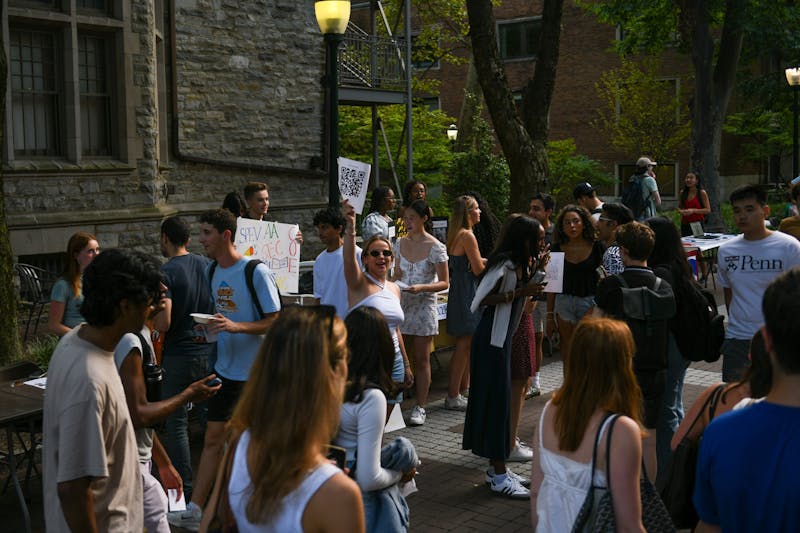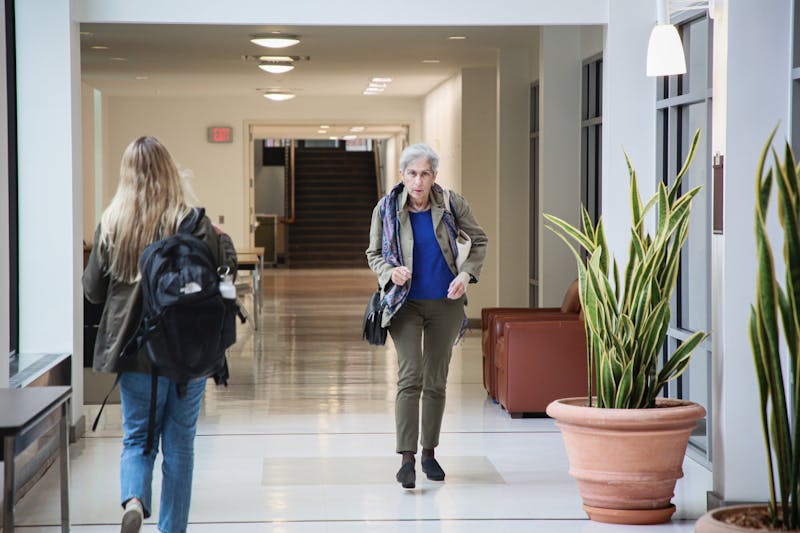Although admissions officials maintain this year's drop in black applicants is primarily due to demographic factors, black student leaders said yesterday the administrators can and should do more to recruit and keep black students at the University. Admissions officials said yesterday that this year's 20 percent drop in black applicants is mostly due both to a nationwide decrease in overall applicants and to the U.S.'s economic problems. Students said yesterday that they recognized these factors played a major role in the change, but said other considerations like the University's recruiting tactics and the support minorities receive on campus also had an adverse effect. Dean of Admissions Willis Stetson said, however, that the decrease is only temporary. "While we are concerned about this one year level, this period of time does not necessarily predict a trend," Stetson said yesterday. "In the past when the numbers have dropped, they have returned to their previous level." But black student leaders are concerned with this decrease. They said the University has not made enough of an effort to recruit black students from inner city schools, instead concentrating too much on private schools. "They need to reach out more to public schools," former Black Student League President Buzz Thomas said. Undergraduate Assembly Chairperson Duchess Harris also said more students from inner city schools should be encouraged to attend the University. "[The prep school recruitment] sends a message that they are looking for a certain type of black student, which is disheartening," Harris said. Harris also said controversy about Locust Walk and other minority issues has sent out a negative message to black high school students. "I attribute [the decrease] to the new draft alterations to the racial harassment policy and the situation on Locust Walk," Harris said. Harold Ford, editor of the black student newspaper The Vision, said that a number of factors contributed to the decrease of applicants, not just at the University but across the nation. "The Bush administration has made it very clear that minority scholarships are not a priority," Ford said. He also attributed the drop to a decrease of college-age students in the United States and a general dissatisfaction with the educational system. But minority admissions recruiter Pippa Porta Rex said high tuition rates at private institutions is one of the biggest deterrents. "I think in general people are reticent to look at schools with price tags like ours with the economy like it is," Rex said. "I think the good thing is the academic strength of the African-American student. It's increasing every year." The University's $60 application fee and a trend of students applying to fewer schools than in the past also contributed to the decrease in applicants, she said. "People are much more focused," Rex said. "They are applying to fewer and fewer schools." Thomas said incoming black students, who will be small in number, will bear an extra burden of representing blacks at the University. "These new black students will be called upon even more to be representatives of a race," Thomas said. Although black applications were down 20 percent, total minority applications to the University fell by only eight percent. In 1990, 719 black students applied to the University. The 1991 projection estimates 580 to 600 black applicants to the University. Staff Writer Damon Chetson contributed to this story.
The Daily Pennsylvanian is an independent, student-run newspaper. Please consider making a donation to support the coverage that shapes the University. Your generosity ensures a future of strong journalism at Penn.
DonatePlease note All comments are eligible for publication in The Daily Pennsylvanian.







